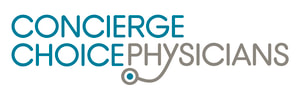HOSPITALS AND HEALTH SYSTEMS GET IN THE MEMBERSHIP MEDICINE GAME
|
As hospitals and large health systems grapple with the COVID-19 pandemic, one thing has become clear: increasing revenue, patient loyalty and physician satisfaction is critical. That’s why today, more health delivery systems are exploring concierge medicine for their physician practices than ever before.
Keith Elgart, Chief Operations Officer at Concierge Choice Physicians, discusses how they’ve supported these systems before then pandemic hit, and how and why there is growing interest. Q: How can a health system that relies on a large patient base support concierge medicine, which limits patients by design? A: That limited membership concierge practice style is how concierge medicine began almost 20 years ago. It’s not the kind of concierge medicine that is developed for today’s practices, in particular, those owned or affiliated with hospitals and large health systems. Today’s concierge medicine is much more flexible. For example, our “hybrid” concierge approach–where physicians are able to offer a membership program as a simple service option for patients who want more time and support¬–works seamlessly alongside the standard business structure of a hospital or health system. No patients are dismissed. It’s a limited membership option just for those patients that want it, while those that do not remain traditional patients of the physician and the practice. Q: How can a physician manage both the concierge program and the traditional program? Isn’t it stressful for doctors who are already under tremendous productivity pressure? A: The hybrid concierge programs are limited to about 5% of the patients in the physician’s panel, so it’s not an overwhelming amount of patients. Usually, the patients who join aren’t the most needy patients, but rather the patients who are most loyal to the doctor, who value their relationship, and may want some additional focus on health and wellness that is not covered by traditional insurance. The doctors we work with who have hybrid programs report tremendous satisfaction with the pace and style of the medicine they can practice during their concierge hours. It’s a return to an old school style of medicine, where they can take their time and also be compensated for it. Q: Let’s talk about productivity and compensation. How does the doctor earn more revenue when they are seeing fewer patients? A: During traditional hours, a doctor will see about four patients per hour which will be billed to insurance or Medicare for reimbursement. During concierge hours, the doctor may see only two patients per hour, and the doctor would still bill insurance or Medicare for the reimbursement. However, they also have the revenue from membership. So assuming the membership fee is $2k annually, and they have about 80 members, each concierge hour becomes quite lucrative. The membership fee alone can generate an extra $160k in annual revenue, and that’s just for an average-sized program. The most important part, though, is that the traditional practice remains, and these patients who do not opt to join still receive the great service and treatment they are accustomed to from the doctor, the practice, and the system. The concierge program is an extra benefit that some patients choose and doctors enjoy. Q: What is your experience working with physicians in health systems? A: When Concierge Choice Physicians started almost two decades ago, the focus was on hybrid programs for private physicians. But like many physicians, some of our clients began to sell their practices to large health systems. They discovered their concierge program added value during the sale, and they wanted to keep the program running after the sale was finalized. Management at the health systems began to see the value themselves. They realized the programs weren’t disruptive to the business structure, and they seemed to improve morale and physician satisfaction. Inevitably, our clients would attract the attention of other physicians in the network, and before we knew it, we had many clients who were offering hybrid programs as part of some of the nation’s largest and most prestigious hospital groups. Eventually, the hospital groups themselves began approaching us. We have recently signed several regional health systems as clients and we are working with select physicians in their networks. Because of the nature of the hybrid approach, we are able to do that—start small and grow over time, as doctors and business managers feel comfortable. |
Keith Elgart, COO Concierge Choice Physicians Q: So, not all of the doctors in the networks have to offer the program?
A: It’s perfectly fine if just a handful of doctors in a network offer the program. It’s fine if just one doctor in a group location offers it and the others don’t. We can market the entire practice or just the single doctor. It’s marketed as a service option that patients can choose, it’s not marketed as a practice transformation, so that makes it very flexible. Everything is customized. Even the marketing. Q: What kind of doctor is best suited for a membership program? A: Primary care physicians are the obvious choice, of course. They see patients routinely and often have close relationships with patients. That makes them ideal for a membership program. But they aren’t the only doctors who have that ongoing relationship with patients. Some of our most successful clients have been cardiologists, rheumatologists, gynecologists, endocrinologists and other specialties focused on non-episodic care. The doctor who would be most successful at this approach to medicine is the doctor with deep and loyal relationships with patients. So, it can be primary care or specialists. We even have clients who are nurse practitioners with strong patient relationships. Q: What do you think is driving this sudden interest? What makes membership medicine right for a health system? A: I think health systems have seen the benefit of offering urgent care to patients who want attention fast. Urgent care centers have proven lucrative and popular. That’s one end of the spectrum, though. On the other end are those patients who miss the days of having one doctor who knows them. They don’t want to see the “next available provider” no matter how convenient it may be. Maybe these patients really love their doctor, or they have a chronic condition and they just want to see the doctor who knows their health history at each appointment. The option for concierge membership allows the health system to offer the full spectrum of care. Urgent care for those quick and urgent situations. A traditional primary care practice for physicals and non-urgent health management. And a concierge program for those patients who want an additional level of personalization and convenience. Q: Do you see membership medicine as key to the future of health systems? A: Definitely. A hospital system is based around the concept of providing health services to meet the varied needs of the communities they serve. This translates to providing various offerings such as urgent care, specialty care and, now in a growing number of systems, an optional concierge program based at the office level across many providers to meet the patients where they are comfortable. It is not about setting up an exclusive facility or private entrance–it is about an experience at the office level for patients and doctors to connect beyond the traditional interaction, when desired. Patients want the peace of mind that comes with being connected to the doctor they know and trust who is watching out for them, and only a phone call away. Q: What should a health system do, if they want to explore membership medicine? A: They can visit our website at www.choice.md/healthsystems for a broad overview of how a health system can benefit from the right concierge choice. They can also call us directly for a complimentary, no-obligation chat. We are happy to discuss what we’ve done for other health systems and the possibilities that may exist in their market. |



